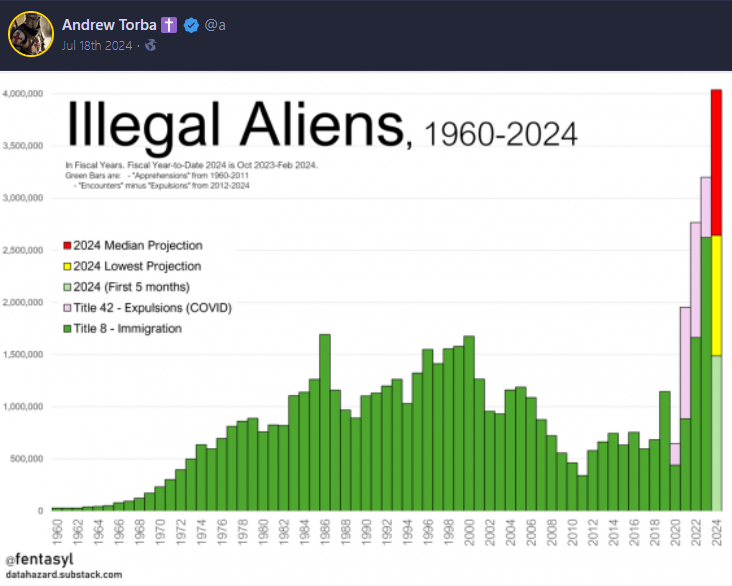It's the Immigrants' Fault!
"They're Poisoning the Blood of our Country"
Blaming Immigration in History - Wield the Lash!
In the Great Depression, We Tried to Deport Immigrants too.
In the 1930s, the Los Angeles Welfare Department began deporting hospital patients of Mexican descent as part of a broader campaign during the Great Depression. This initiative included vulnerable individuals suffering from conditions such as leprosy, tuberculosis, paralysis, mental illness, and age-related issues. Patients were forcibly removed from medical institutions and transported just over the border to Mexicali, Mexico, reflecting a troubling approach to public health and immigration.

A magazine from 1932 shows a man whipping immigrants with a lash called “deportation”
Repatriation Drives
WE DEPORTED US CITIZENS.
Research conducted by former California State Senator Joseph Dunn uncovered that approximately 60 percent of those deported were likely U.S. citizens, many born in the country to first-generation immigrants. This finding highlights the injustice and racial discrimination inherent in these deportation policies, underscoring a painful legacy of exclusion and marginalization faced by Mexican Americans during this period.
The Alt-Right's Fake Immigration Numbers
Data collected from the Pew Research Center

* Fiscal year (FY) 2024 data are through February.
Notes: For FY 1993 through FY 2008, Department of Homeland Security (DHS) data did not distinguish between enforcement returns, which apply to irregularly arriving migrants, and administrative returns, which apply to migrants who withdraw their applications for admission and foreign crewmembers without visas ordered to stay aboard their ships, among others; for FY 2009 onward, enforcement returns and administrative returns are categorized separately. It is possible that administrative returns comprised only a small share of overall returns in the FY 1993-2007 period.
Sources: U.S. Border Patrol, “Southwest Border Sectors: Total Encounters by Fiscal Year,” accessed June 24, 2024, available online; DHS, Office of Homeland Security Statistics (OHSS), “Immigration Enforcement and Legal Processes Monthly Tables — February 2024,” updated June 7, 2024, available online; DHS, OHSS, “Yearbook of Immigration Statistics,” updated May 3, 2024, available online.
Andrew Torba, CEO of the alt-right social media site GAB, posts these numbers as fact (crediting datahazard.substack.com)

Trump Exaggerated the amount of Border Wall he Built. "We Build the Wall" campaign linked to Steve Bannon misused donated funds for the project and was convicted. TRUMP PARDONED HIM.
During a rally in Green Bay, Trump exaggerated the number of miles of the Mexican border wall he built, according to a Customs and Border Protection status report. The report indicated that 373 miles of the wall consisted of replacements for existing, outdated, or dilapidated fencing rather than new construction.
Trump and Migrant Crime
According to the US Customs and Border Protection's website, arrests of noncitizen criminals by the US Border Patrol are relatively low compared to the total number of migrants. A study co-led by Northwestern University economist Elisa Jacome over a 150-year period indicates that immigrants are significantly less likely to commit crimes than those born in the US.
In the above video (Watch on Youtube), notice how his supporters are chanting "Build that Wall" - if you noted in the above section, the Trump Campaign (Steve Bannon) stole their money during the We Build the Wall fundraising campaign, and then Trump pardoned him.
Trump wants to End Birthright Citizenship (and that amendment is NOT in his Trump Bible!)
I really don't care, do u?
How Japanese Internment Camp Laws could influence Trump's Deportation of Immigrants
Korematsu v. United States
Korematsu v. United States (1944) was a landmark Supreme Court case that addressed the constitutionality of the internment of Japanese Americans during World War II. Following Japan's attack on Pearl Harbor in 1941, the U.S. government, driven by wartime fears and racial prejudice, ordered the forced relocation and internment of around 120,000 Japanese Americans, most of whom were U.S. citizens.
Fred Korematsu, a Japanese American man, defied the internment order and was subsequently arrested. He challenged the constitutionality of the internment, arguing that it violated his rights under the Fifth Amendment. The Supreme Court, in a controversial 6-3 decision, upheld the government's decision, citing national security concerns as justification for the internment.
The ruling has since been widely criticized for its endorsement of racial discrimination and the government's wartime powers. In later years, the decision has been acknowledged as a grave injustice, and in 1988, the U.S. government formally apologized and provided reparations to surviving internment victims. Korematsu v. United States remains a pivotal case in discussions about civil liberties, racial discrimination, and the balance between security and individual rights.
Trump's Muslim Ban (first term) and Japanese Internment Camps
Pod Save America: Trump's Plan for Immigrants
Colony Ridge
Profiting off Illegal Migration
They're Eating the Pets
During the 2024 Debate between Donald Trump and Kamala Harris, Donald Trump claimed that Haitian Immigrants were Eating the Pets of the people that lived there.
The Effect of Lies
Senator JD Vance has continued to assert his unfounded claim that Haitian migrants in Springfield, Ohio, have been eating pets, a narrative that former President Donald Trump has also promoted. In a recent CNN interview, Vance defended his statement by citing "first-hand accounts of my constituents" and suggested that he would create stories to attract media attention to the struggles of American citizens. He criticized the media for ignoring immigration issues affecting smaller cities like Springfield, which has welcomed approximately 15,000 to 20,000 migrants in the past four years.
The claims made by Vance and Trump have led to increased tensions in Springfield, including a series of bomb threats directed at the city. Trump, during a press conference, vowed to initiate the largest deportation effort in U.S. history, starting with migrants in Springfield and Aurora, Colorado, despite local law enforcement dismissing these statements as exaggerations.
Blood Tribe
And now they’re stealing the geese. Right from the lake in the damn park. 😤 https://t.co/zCk2eGFyc8
— Jane Lynch (@janemarielynch) September 13, 2024
"If I have to CREATE STORIES so that the American media pays attention to the suffering of the American people, then that's what I'm going to do."

The Aliens Enemy Act of 1798
The prospect of Donald Trump winning another term in office raises significant concerns, particularly regarding his commitment to execute the "largest domestic deportation operation in American history." Trump plans to utilize the Alien Enemies Act of 1798, an 18th-century law that allows for the detention and removal of immigrants during wartime or in response to threats against the U.S. This act has historically been invoked only during major conflicts, such as the War of 1812 and both World Wars.
During a recent campaign event in Aurora, Colorado, Trump reiterated his intention to apply this law against "every illegal migrant criminal network" in the country. Although the law cannot be used against American citizens directly, it could potentially impact U.S.-born children of immigrants, raising concerns about constitutional rights violations. Katherine Yon Ebright from the Brennan Center described the Alien Enemies Act as an outdated law that could infringe on civil liberties, suggesting that its appeal to Trump may stem from its broad application.
The Trump campaign confirmed the former president's plans for mass deportations in a second term, highlighting his intent to use mechanisms like the Alien Enemies Act as a basis for these actions. This potential approach has alarmed many who fear its implications for immigration policy and civil rights in the United States.
